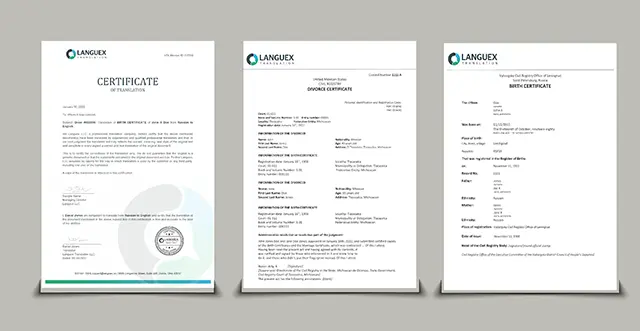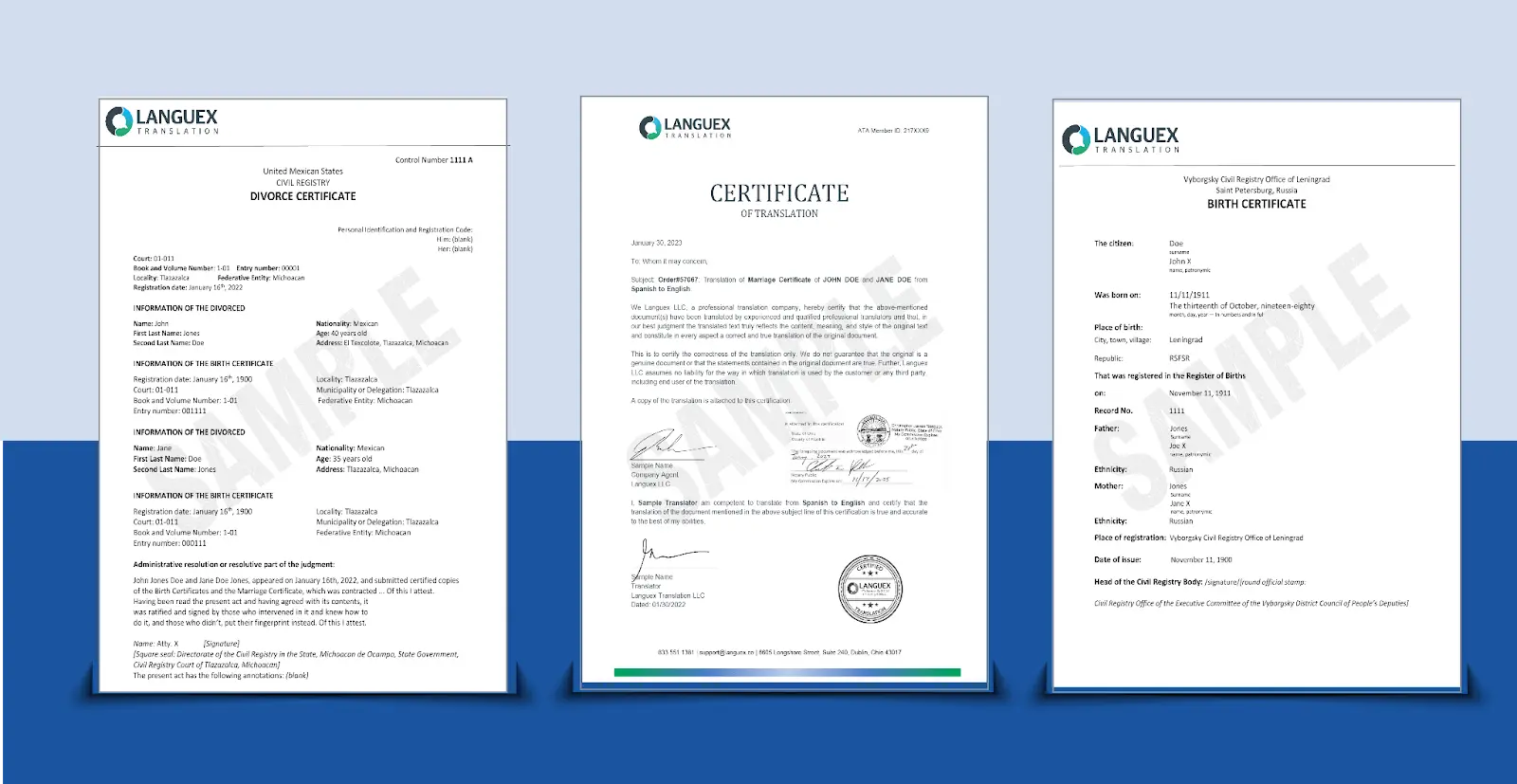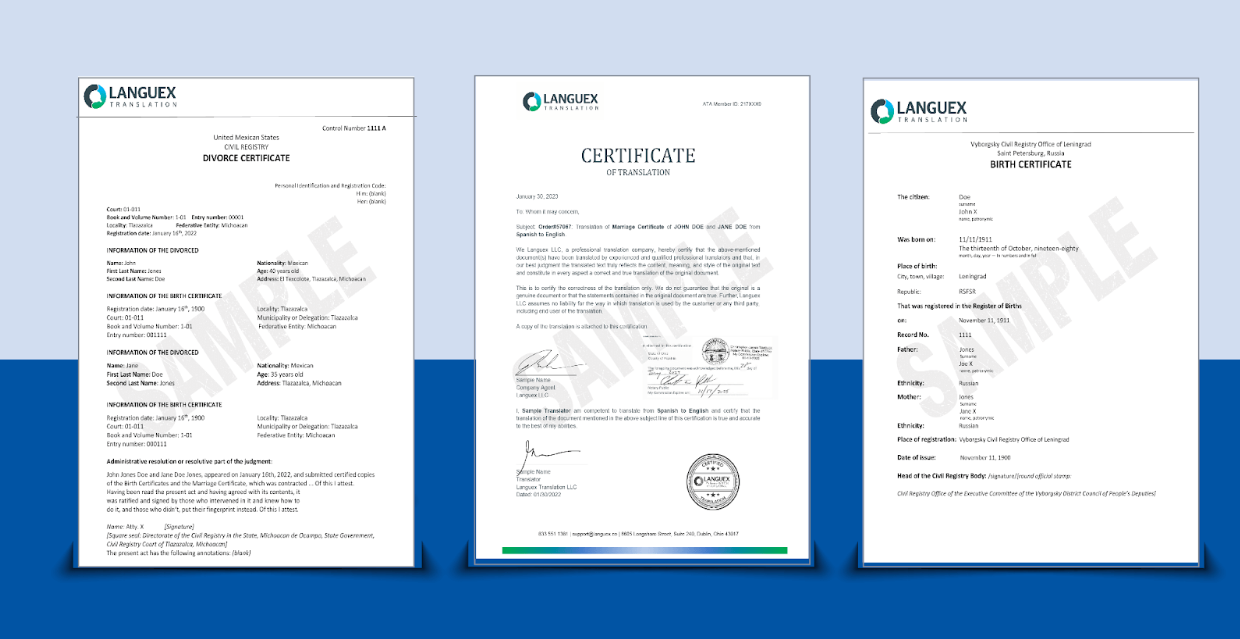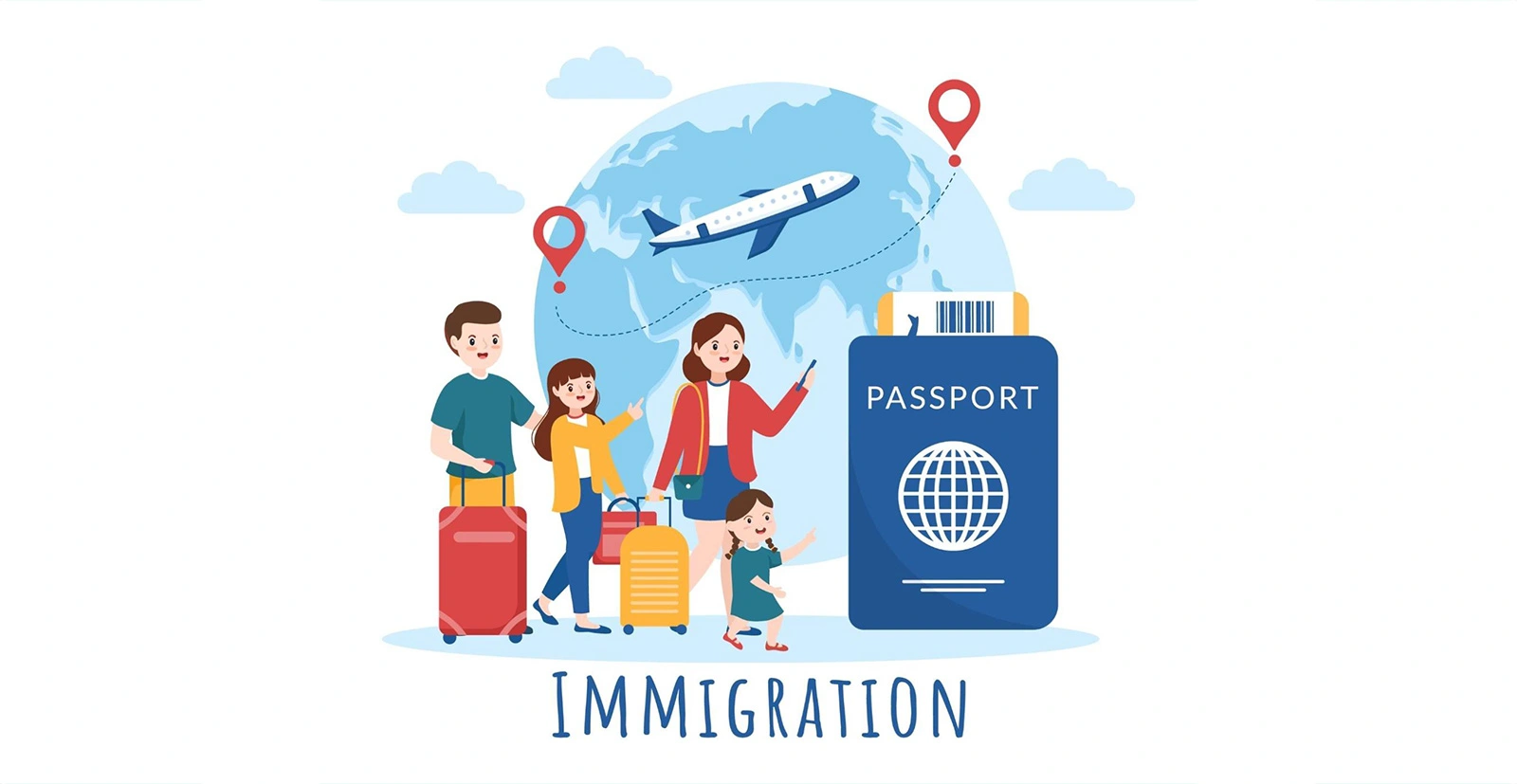In a world that’s grown increasingly connected, both physically and digitally, the demand for translation services that can translate content between different languages has skyrocketed. But that doesn’t mean that all types of translations are the same. Understanding the different types of translation options, who might need them, and how you can get them can help you save time, money, and stress. As a professional translator, I will explain all the common different type of translation services and give a comprehensive breakdown.
Key Takeaways:
- Translation services generally involve translating content from one language to another. They’re often used for travel, moving to a new country, and legal, medical, or other official uses.
- Choosing the right translation type for your needs is vital in terms of making sure the right requirements are met.
- Common examples of translation types include certified translations, notarized translations, professional translations, and technical, localized, legal, and medical translations.
- Selecting the right translation service providers involves looking for translators who are certified, experienced, and have the proper qualifications in the languages that apply to you.
- You can trust the Languex team to provide accurate and reliable translations for any use case or document type.
Table of Content
Definition of Translation Services
A simple definition of translation services is the process of converting either text or speech from an original language to a new one.
The reasons you might need translations can vary from personal use to official, legal, medical, and other uses, but no matter what you need them for, it’s best to trust professionals like the Languex team to get the job done right.
Importance of choosing the right translation type for specific use cases
Not all translation types are created equal, even those done by professional translators.
If you need a translation for USCIS, for instance, you might need certified translation services completed by someone who has the proper qualifications. In contrast, something more informal, like an app translation, might be better suited to a translator who has experience working with this sort of project.
That’s why it’s important to pick the right translation type for your situation. You’ll want to ensure that the best fit for the job works on your order and that all of the official requirements your translation might need to meet are taken into consideration.
The last thing you want is to run into delays or issues down the road because your translation doesn’t fit the bill. Understanding what your needs might look like can help you get the best services possible without any hassle.
Types of Professional Translations
If it’s crucial to make sure you get the right type of translation for your needs, what kind of document translation services should you be aware of? There are some main use cases to familiarize yourself with that encompass the most common kinds of translation projects we work with here at Languex. Let’s take a closer look.
Certified Translation
A certified translation is a word-for-word translation that comes with a signed statement from the translator or translation agency. This statement, often referred to as a “Certificate of Accuracy,” verifies the accuracy and completeness of the translated document.
These kinds of translations are usually needed for official purposes where the integrity of a translated document can be crucial.
According to the U.S. Department of State, for instance, all documents that contain information in a foreign language must be accompanied by a full English translation and a signed certification that verifies the submission is a complete and accurate translation.
You might need a certified translation for materials like:
- USCIS certified translations
- Immigration and citizenship papers
- Birth certificates
- Financial translation
- Marriage certificates
- Academic transcripts
Notarized Translation
The National Notary Association describes notarization as a process that’s meant to assure the parties involves in a transaction or official process that a document is authentic and can be trusted. When applied to translations, notarization can confirm that a signed certification has indeed been signed by a qualified translator who is who they say they are.
It’s important to note that notarized translations can not verify that the translated content is accurate, but they do ensure that the certification that comes with a translation can be trusted.
And if a certification is meant to verify that a translation is accurate and completed by a qualified professional, a notarized translation comes with an extra layer of security that doubly confirms this fact.
Notarized translations aren’t always necessary, but they might be required for some official purposes such as:
- Court or legal proceedings
- Immigration applications
- Financial documents
- Educational applications
- Business transactions (i.e. setting up a company or trying to tender documents abroad)
Professional Translation
A professional translation, sometimes also known as a standard translation, can refer to any translated document or content that’s been completed by a professional translator or translation company. It’s usually a literal translation that still captures the original document’s tone, style, and format.
A general translation like this is fairly versatile in terms of its potential uses and contexts, but in general, any time you need an error-free and high-quality translation, you’ll likely want to turn to professional translation services like Languex.
You might need a professional translation for things like:
- Emails and correspondence
- Marketing materials
- Personal documents (e.g. resumes, letters)
Technical Translation
As the name likely implies, a technical translation involves converting technical materials from one language to another, often for business or other official purposes. Technical documents can include anything from instruction manuals to business documents, depending on the industry.
As a result, technical translations are most often needed for specific projects that might have unique factors to consider, like measurements, data, and other key details.
Examples of instances that might warrant a technical translation include:
- Engineering specifications
- User manuals
- Research papers
- Patent applications
Localized Translation
A localized translation can fall into any of the other categories listed here and more. These translations have been gggadapted to fit the linguistic and cultural norms of a specific region or target audience to help them engage and connect with content.
The localization process can help you gain more clicks from interested readers by using language that’s specific and relatable to them. They’re often used for materials that engage with outside users, including things like:
- Websites
- Software applications
- User interface setups
- Video games
Legal Translation
Any time you need legal documents translated from one language to another, you likely need a legal translation. Legal translation services might be used to engage in business or legal actions with actors from different countries, to make documents accessible to an international audience, or to verify important information.
Examples of common legal translations include:
- Contracts and agreements
- Court transcripts or judicial translation
- Intellectual property documents
Medical Translation
A medical translation involves converting things like medical records and documents from one language to another so that a person can receive proper medical care, engage in research, or perform a similar task without problems.
You might need one if you’re living or traveling abroad, working in the medical field, or seeking medical attention in a different country. These translations may need to be certified and/or notarized, depending on the circumstances.
Popular medical translation examples can include:
- Patient records
- Clinical trial reports
- Medical device manuals
Online Translation
Online translation services usually refer to web-based platforms or tools that can provide translations of text or speech from one language to another using the internet.
They can include machine tools like Google Translate as well as professional translation services like Languex. However, only professional human translators can produce error-free and culturally-relevant results the way that Languex does.
Want more details? Check out our comprehensive guide on online translation services to learn all you need to know.
Machine Translation
A machine translation typically is completed by a computer-based tool or artificial intelligence (AI) and converts documents and written materials from one language to another. These resources can be prone to errors and inconsistencies and are not the best choice if you need a proper translation.
Tips to Select The Right Translation Company
Because there are so many types of translations to consider, each with its own specific needs and factors to consider, it’s important to trust only the best translation companies. To do that, you can look out for signs that a translation company has the right professionals, the right experience, and a commitment to quality.
Keep an eye out for translation companies that:
- Can produce certified and notarized translations.
- Employ translators who are fluent in the original and target language.
- Offer revisions and quality control processes to ensure translations are accurate.
- Are certified by The American Translators Association, which offers one of the most respected certification options in the industry. According to the Association, it’s the only widely-recognized measure of competence for translations in the U.S.
Languex ticks these boxes and more, all for a price that you won’t find anywhere else. No matter what type of translation you need, our expert team is prepared to get you the results you’re after fast and without errors.
Frequently Asked Questions About Types of Translation Services
Want to learn more about the different kinds of translations and how you can take advantage of them? Read on for a deeper dive into some of the most commonly asked questions on the subject.
What is translation and localization services?
While translation services refer to converting written content or speech from one language to a new one, localization services involve adapting content to fit the linguistic and cultural norms of a specific region. A localized translation might, for instance, be tweaked to include more conversational and regional language choices, local currencies, and other details that make content comprehensible to a target audience.
What is the difference between interpretation and translation services?
Interpretation and translation services both deal with the conversion of content from one language to another, but they differ in terms of their medium and the process they involve. Interpretation services deal with spoken language and require real-time or near-real-time conversion while translation services deal with written language and usually take more time to complete.
What is the average cost for translation services?
While many translation companies charge upwards of $30-50 for a single project, at Languex, you can receive a professional translation for just $24.50/page (a page is considered 250 words or less).
What is document translation services?
Document translation services can refer to any translation of a written document, such as a contract, birth certificate, driver’s license, and anything else that might be printed and used for personal or official purposes. These materials are translated from one language to another.
Conclusion
There are many options for translations out there, ranging from choices for personal to official and other uses. The best translation service for your needs depends on the requirements you’ll need to meet, your goals, and how you hope to use the translation.
No matter what, though, Languex is your one-stop shop for all kinds of translation services in over 100 common languages. Contact us today to learn more about how we can deliver the translations you need.




